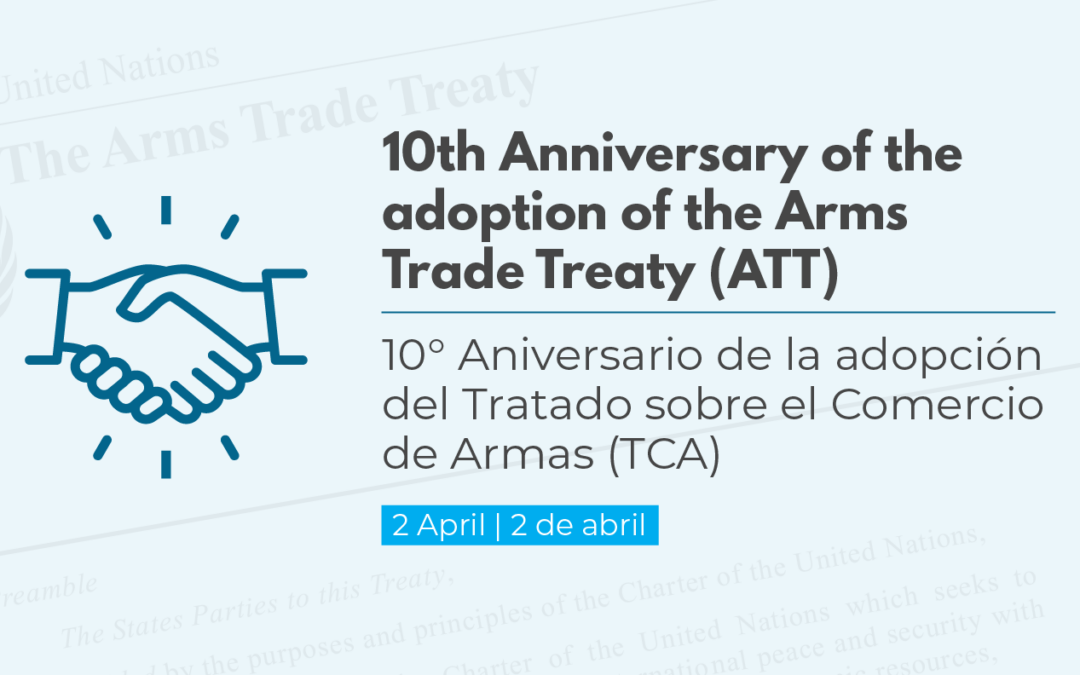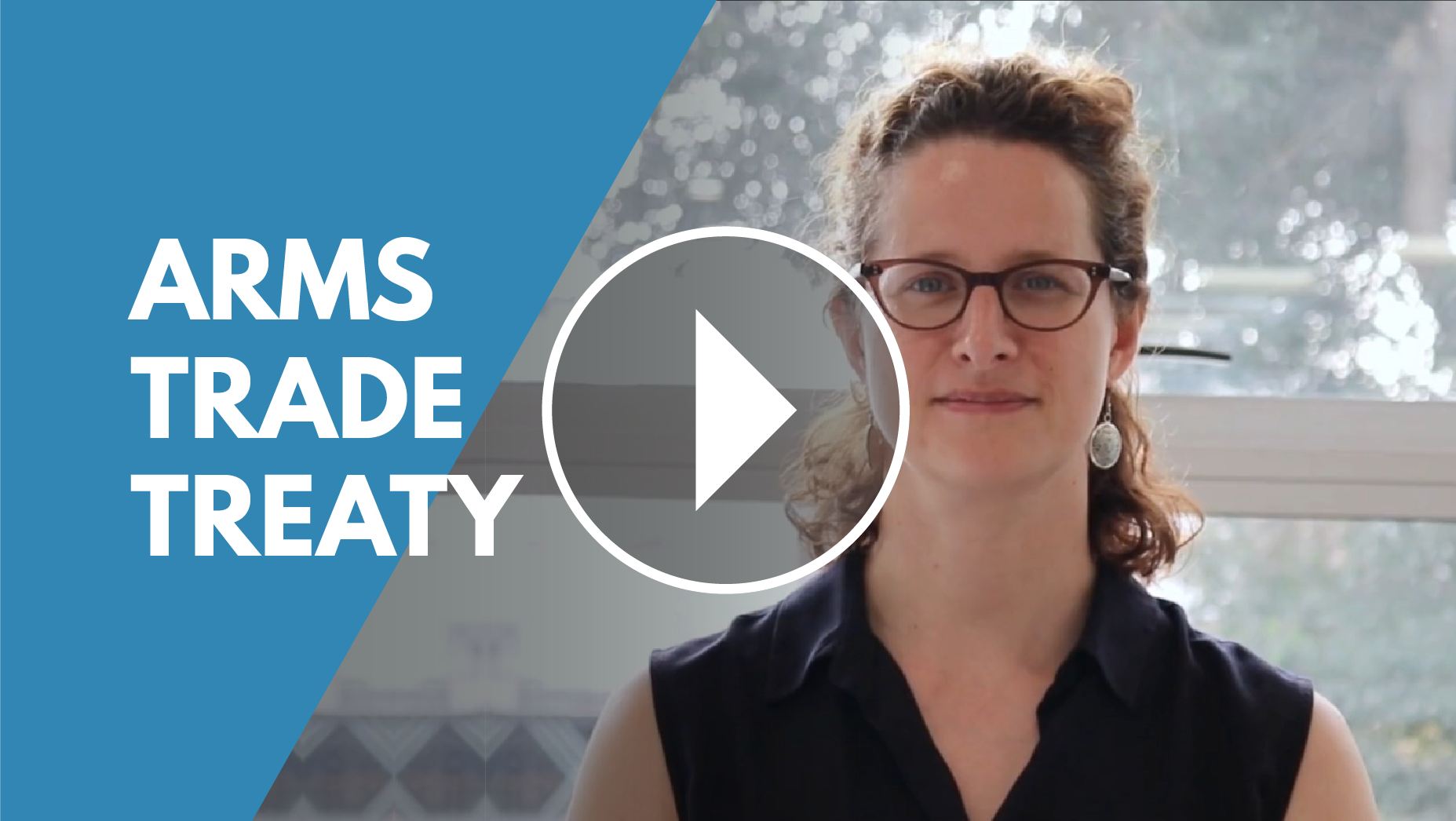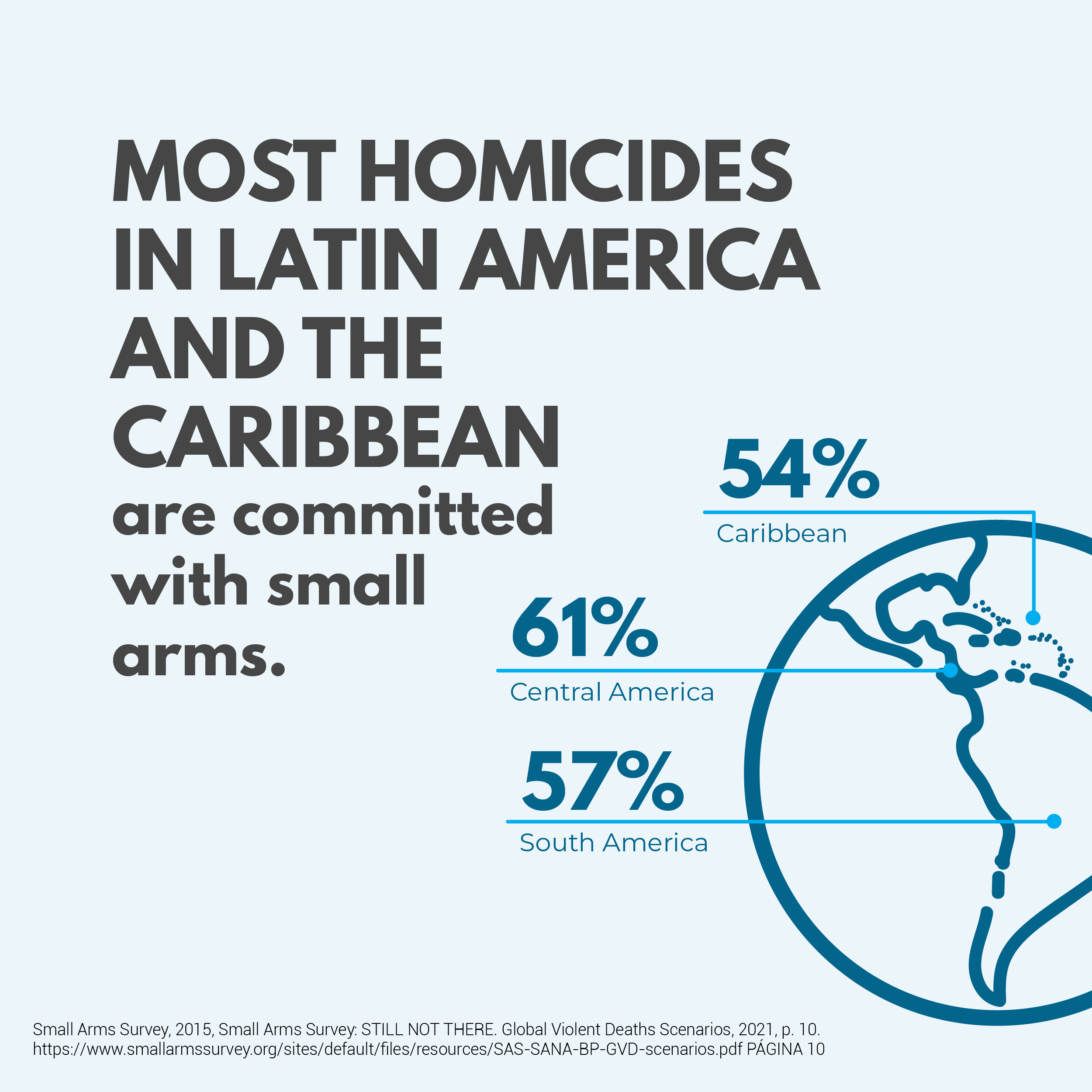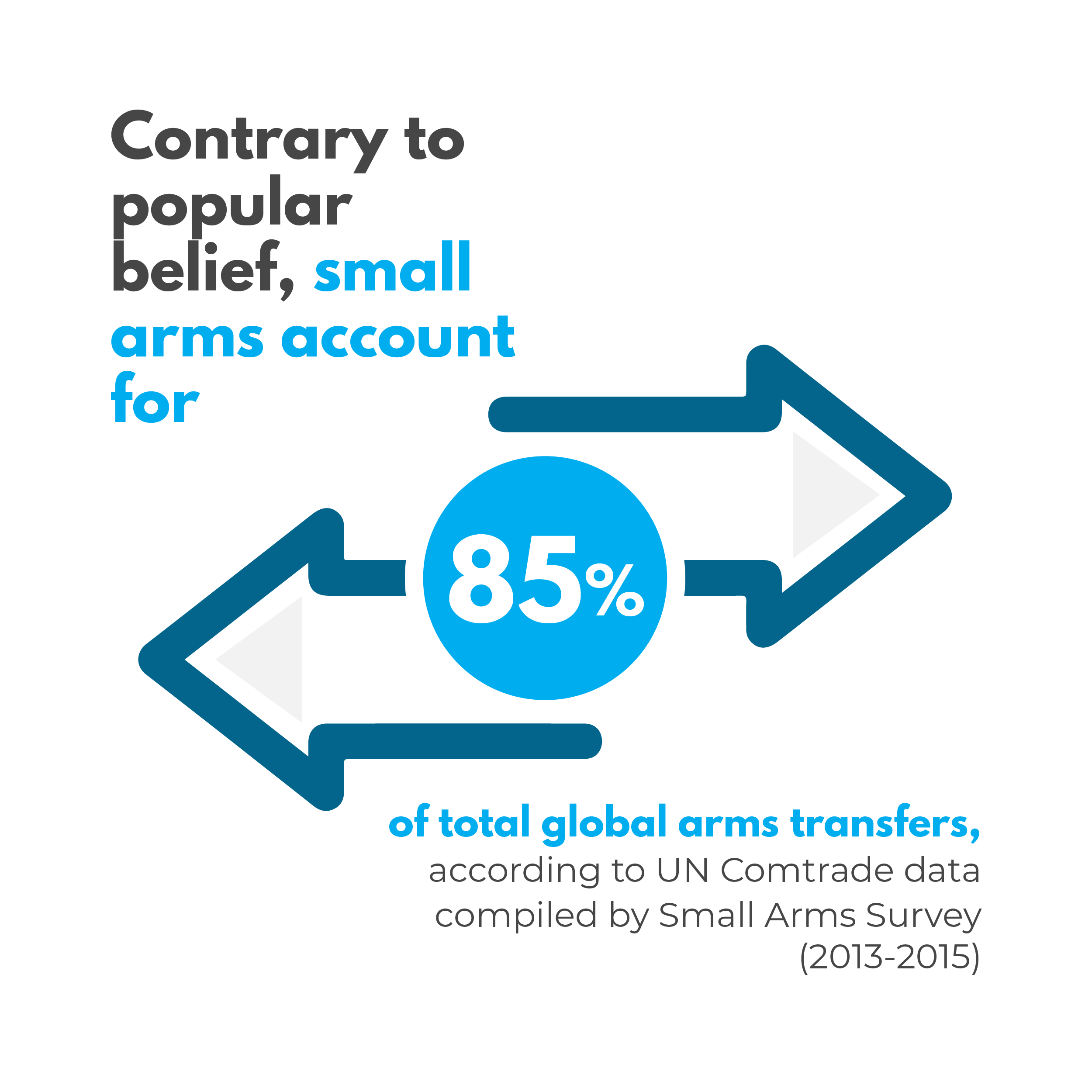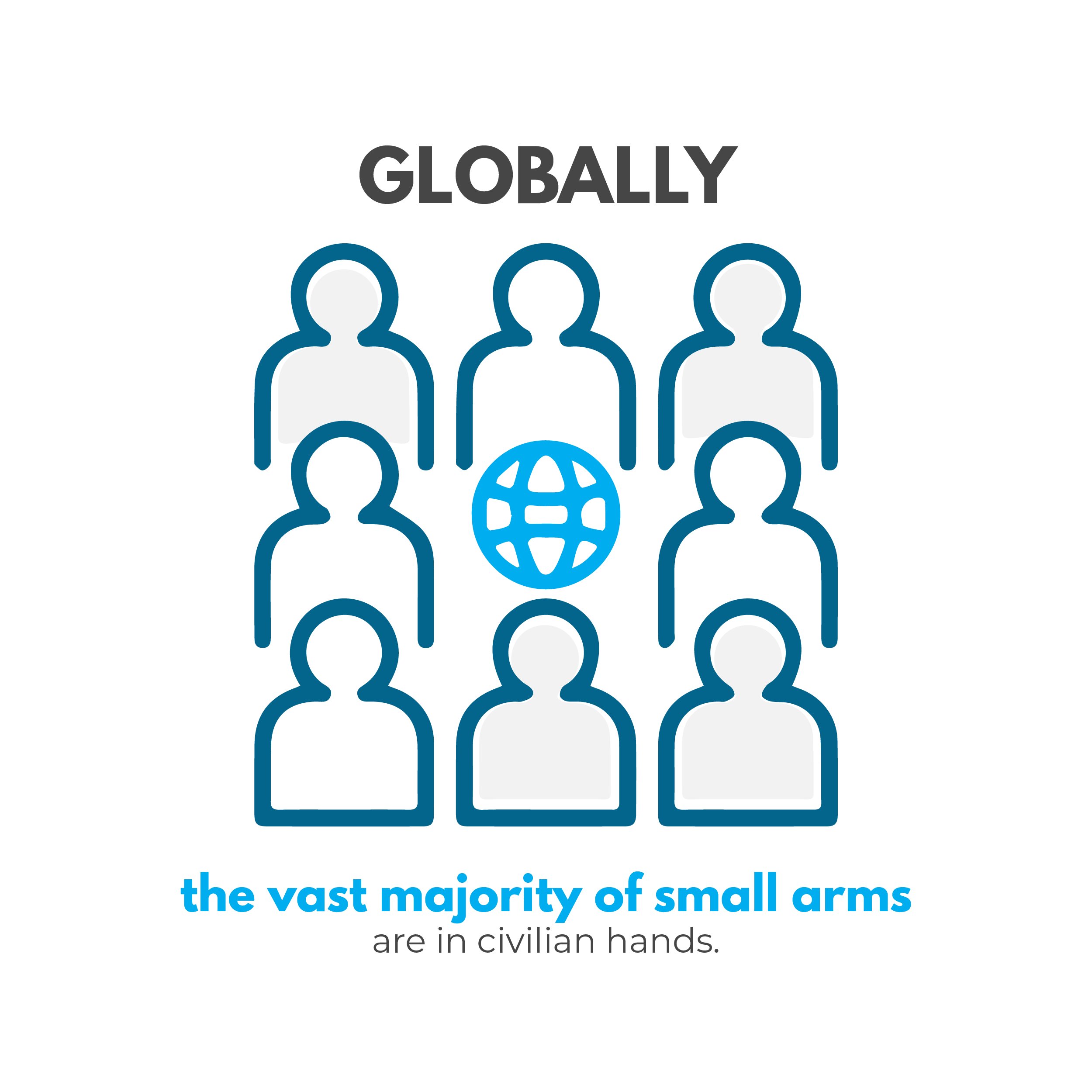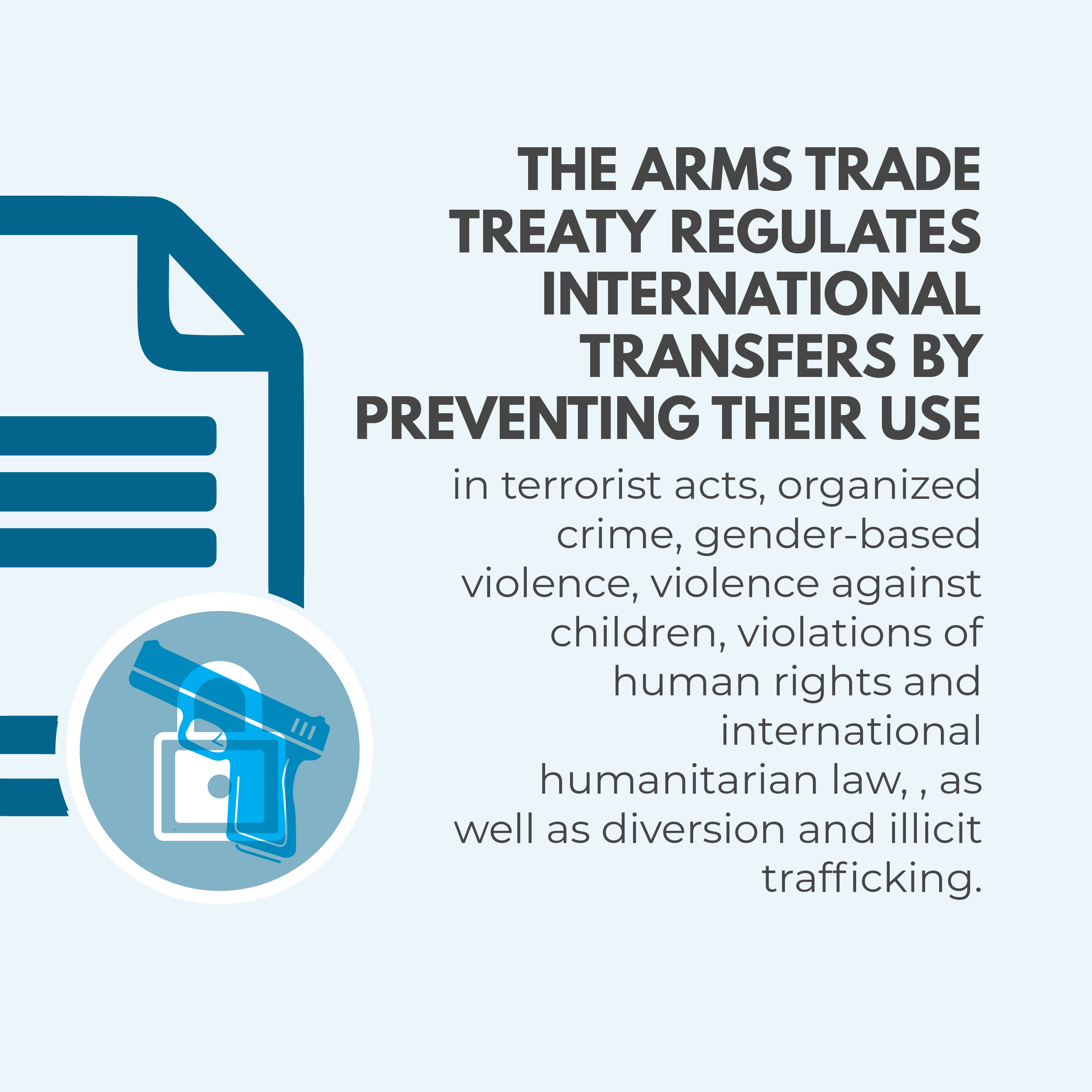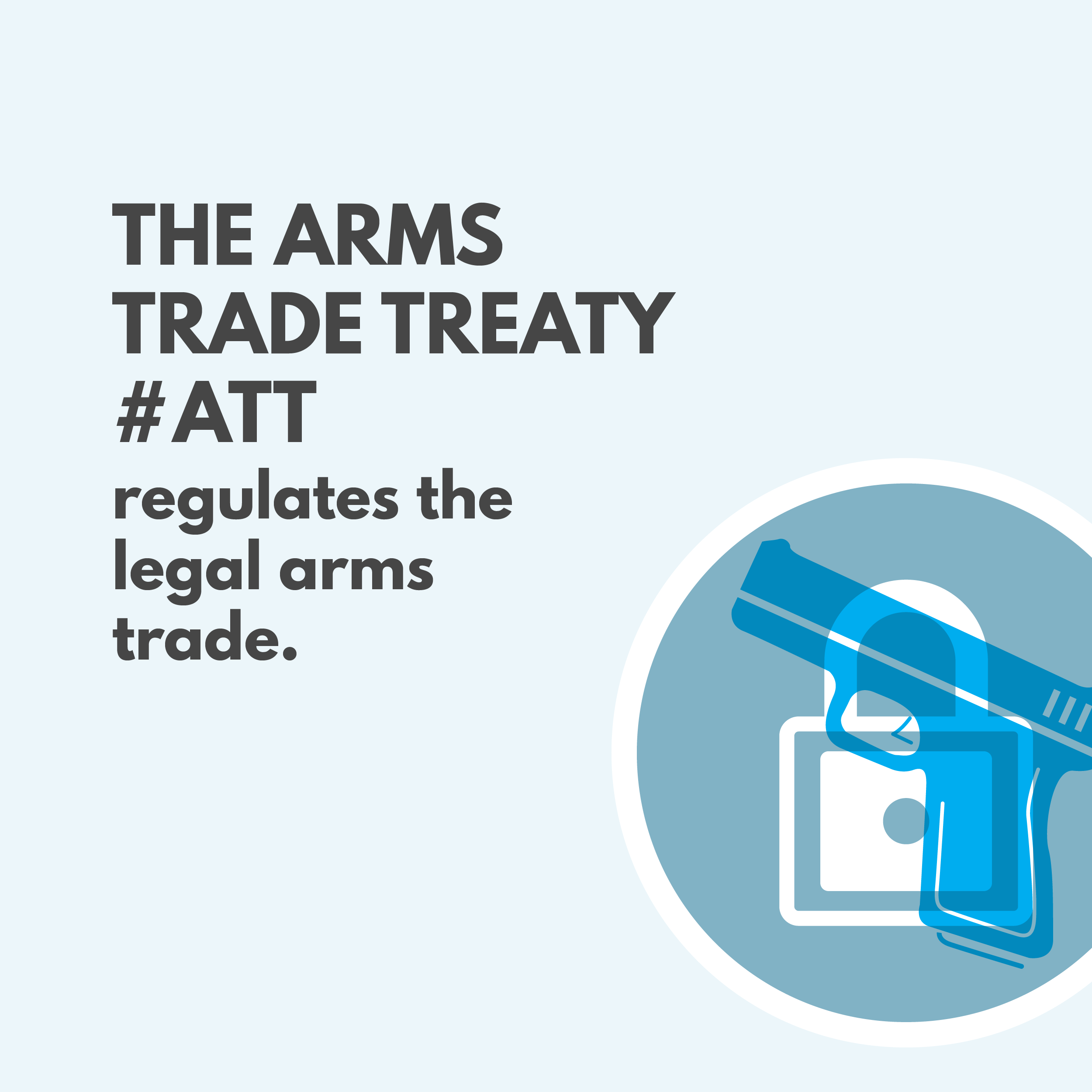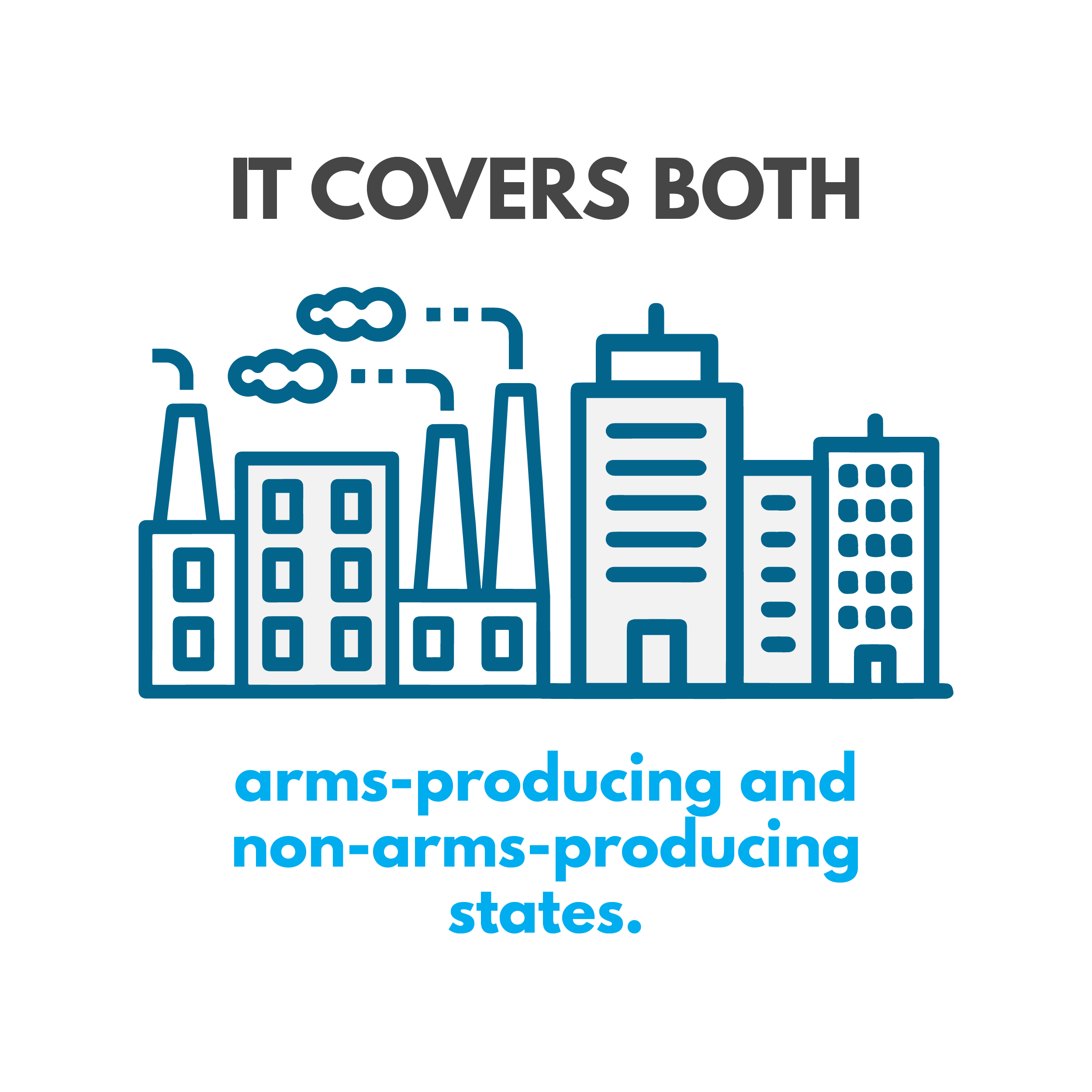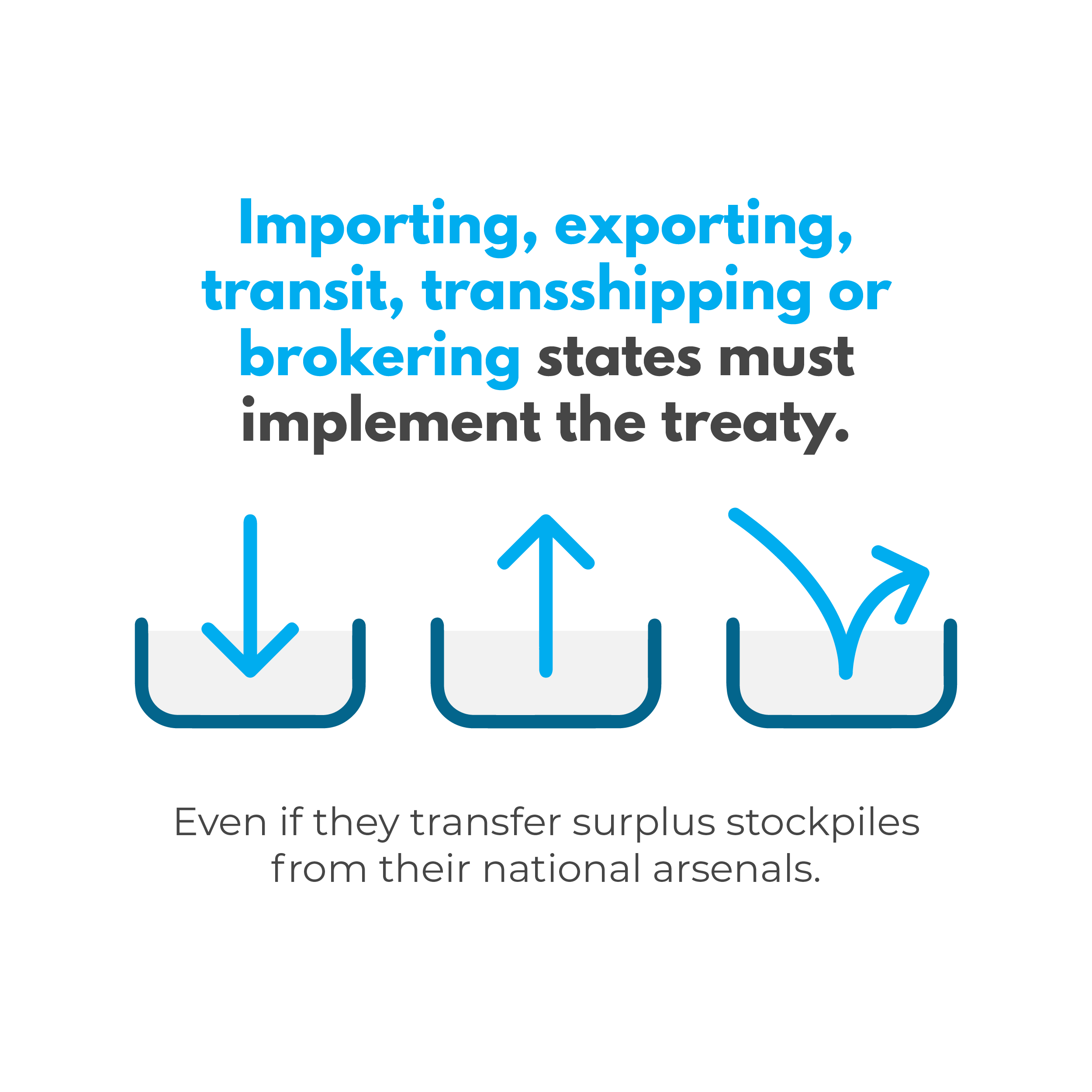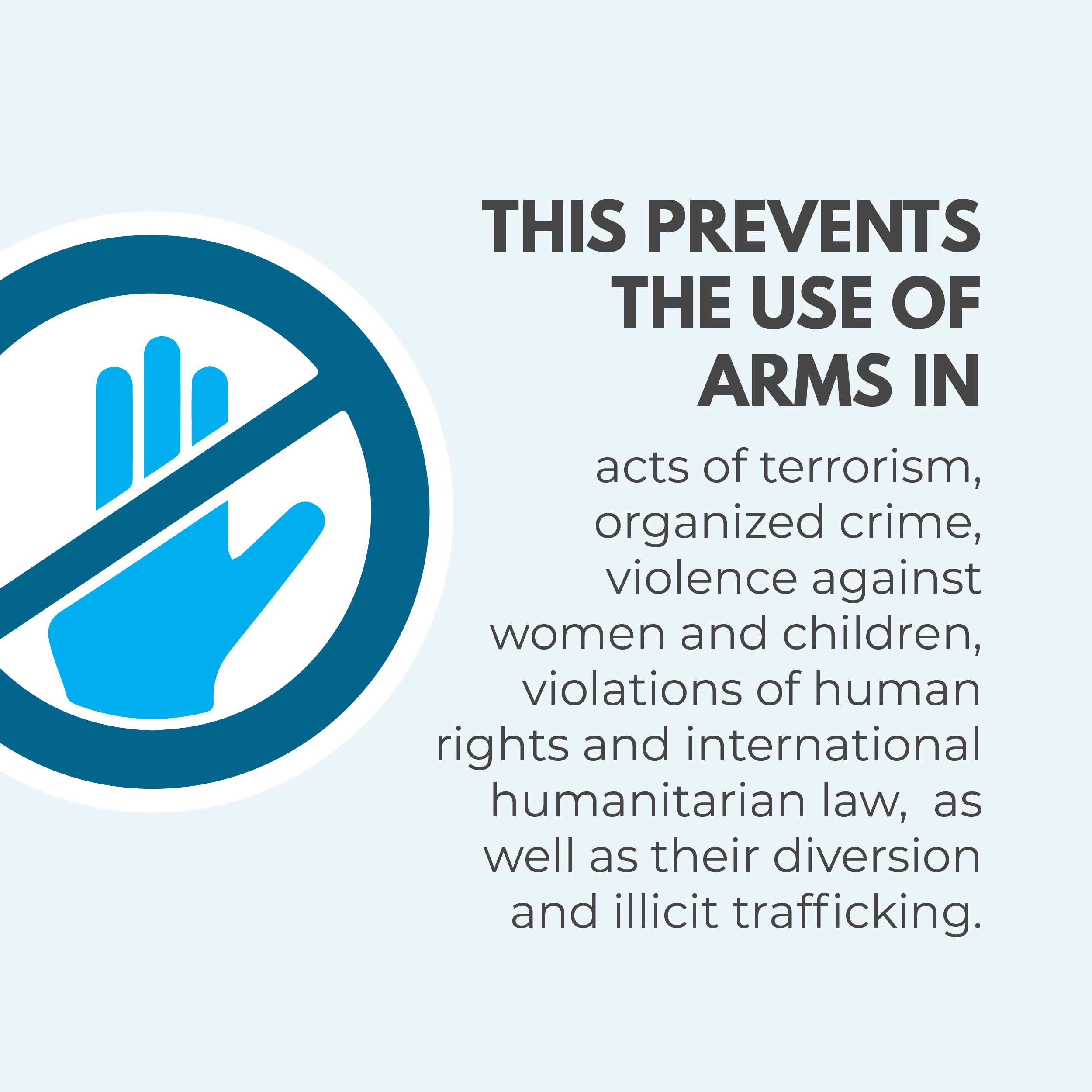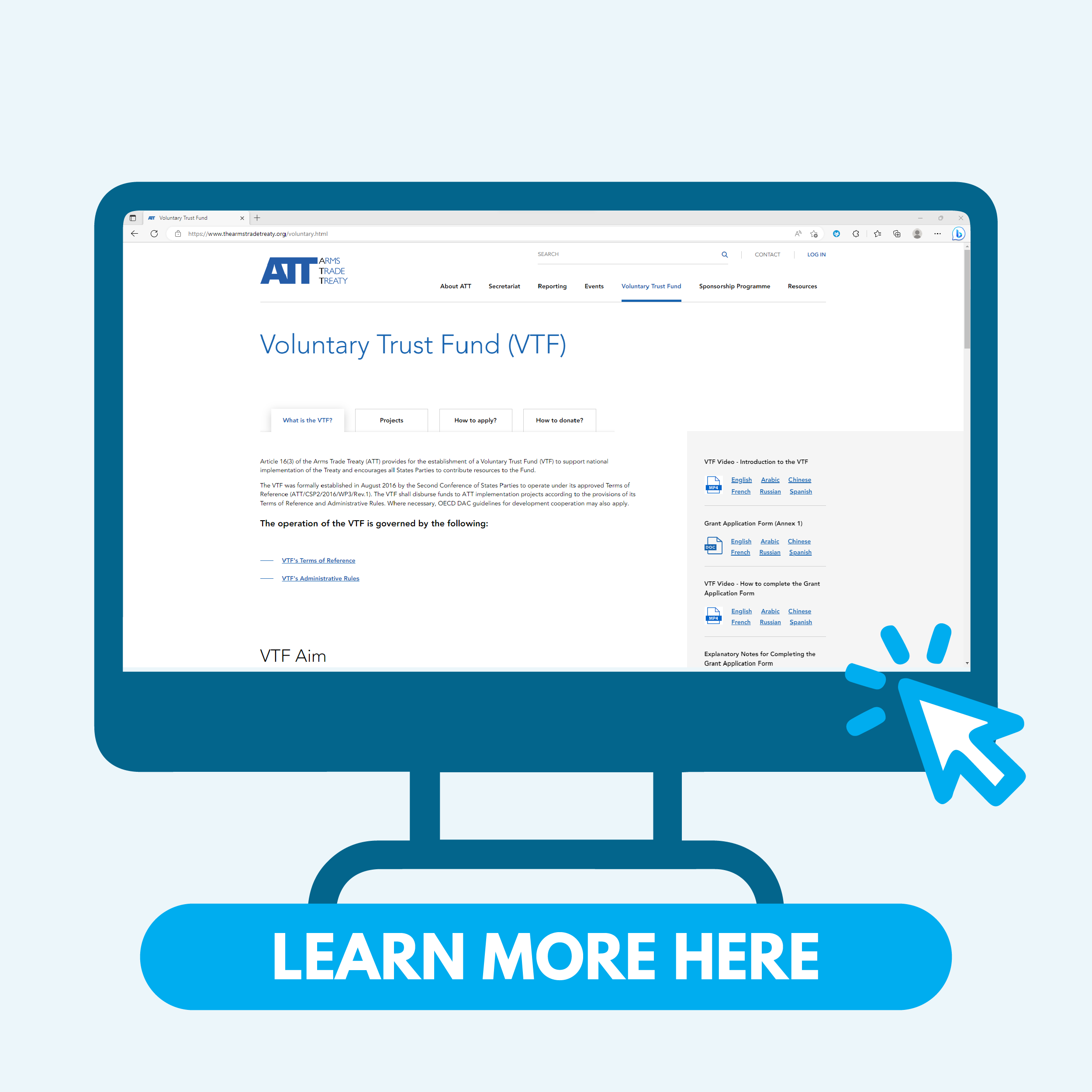The Arms Trade Treaty aims to regulate the international trade in conventional arms, as well as to prevent and eliminate their illicit trafficking and diversion.
The Treaty was adopted on 2 April 2013 and entered into force on 24 December 2014.
What are the main provisions of the Arms Trade Treaty?
The ATT establishes prohibitions on the transfer of arms, ammunition, parts and components when there is a possibility that they may be used to commit acts of genocide, crimes against humanity, attacks against civilian objects or persons, or other war crimes, among others.
In addition, States must evaluate each export and determine whether there is a risk that the arms, ammunition, parts and components could be used to commit serious violations of International Humanitarian Law or Human Rights, acts of terrorism, organized crime, or serious acts of gender-based violence or violence against women and children, and if so, deny such export.

Why is this Treaty important?
It is estimated that the financial value of the global arms trade in 2020 was at least $112 billion, and according to UN Comtrade data compiled by the Small Arms Survey, 85% of global transfers were of small arms, which are used to commit the majority of homicides. In Latin America and the Caribbean, the percentage of homicides committed with small arms is estimated at 61% in Central America, 54% in the Caribbean and 57% in South America. The Arms Trade Treaty promotes the responsibility of States in international transfers of conventional arms, establishing prohibitions on transfers of these weapons in certain cases, as well as the obligation to conduct a risk assessment of each export.
According to the Arms Trade Treaty, what are international transfers?
International transfers are export, import, transit, transshipment and intermediation, for which States must adopt control measures.
Do the provisions contained in the ATT only apply to manufacturing countries?
No. The Arms Trade Treaty provides for the obligation to establish appropriate measures to regulate international arms transfers, and therefore reaches all States involved in such transfers. Each exporting State must evaluate each export operation, including re-exports of items not manufactured in the country.

